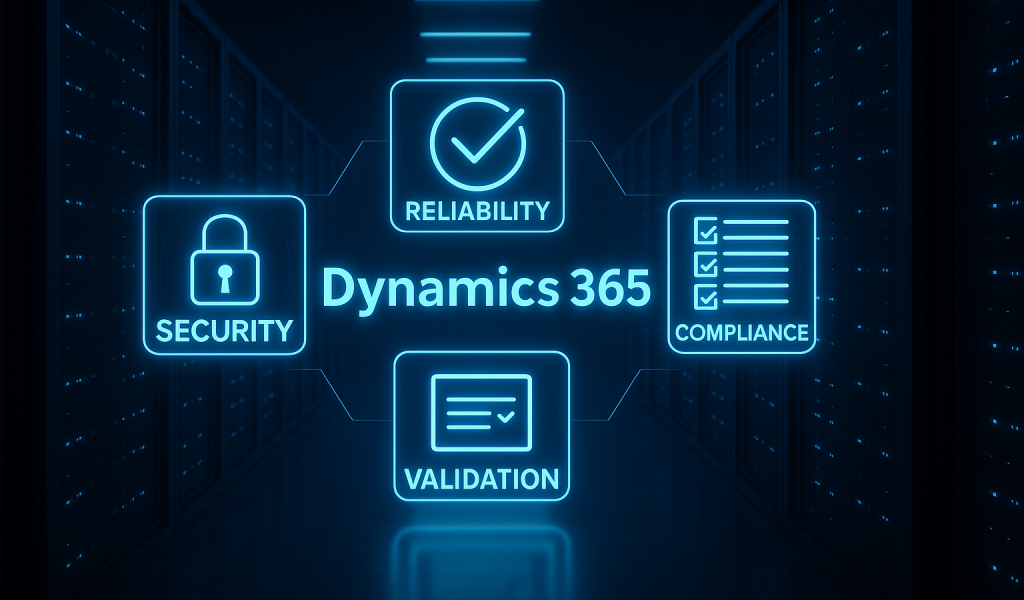Cloud-based ERP and CRM platforms have become the foundation of modern business operations. Traditional on-premise systems which are expensive to maintain, slow to update, and limited in flexibility – are struggling to support today’s pace of change. Businesses now require real-time visibility, rapid adaptability, and continuous innovation, which can only be delivered through cloud-native business applications.
Yet moving to cloud ERP/CRM is not just an IT decision. It is a strategic business shift towards connected operations, intelligent automation, and the ability to scale without technical constraints. This article outlines why cloud-based ERP and CRM systems have become the superior approach, and how AI is transforming what these platforms can deliver.
Cloud ERP & CRM as a Strategic Advantage
Modern cloud platforms fundamentally change how organisations manage and operate their core processes.
Innovation Without Disruption
Cloud systems deliver improvements continuously:
- Feature/version updates as and when available
- Seamless performance enhancements
- User interface improvements
- Automation and AI capabilities built-in
There are no large, costly upgrade projects — innovation becomes part of the operating model.
Scale Instantly With Business Needs
Cloud environments allow organisations to:
- Add new users and roles quickly
- Expand into new markets or divisions
- Handle peak workloads without performance issues
Scalability becomes an operational advantage.
Lower Total Cost of Ownership
Cloud-based systems remove the need for:
- Physical servers
- Database infrastructure
- Manual backups
- Complex disaster recovery systems
- Costly upgrade projects
Operational expenditure becomes predictable and transparent.
Unified, Connected Data
Cloud ERP and CRM centralise business information across:
- Finance
- Operations
- Supply chain
- Sales
- Customer service
- Reporting
This unified data model enhances decision-making, forecasting, and cross-functional collaboration.
AI: The Catalyst for Modern ERP & CRM Transformation

AI is redefining how ERP and CRM systems operate. Because cloud platforms consolidate data and workflows in one ecosystem, they are uniquely positioned to harness AI effectively.
AI in Operational Processes
AI can:
- Generate financial commentary
- Predict inventory shortages
- Highlight anomalies in transactions
- Suggest replenishment actions
- Provide operational insights for forecasting
These capabilities help teams work faster and make more informed decisions.
AI in Customer-Facing Processes
AI enhances CRM functions through:
- Automatic summarisation of emails, calls, and case notes
- Drafting sales proposals or follow-up messages
- Identifying high-value leads
- Providing next-best-action recommendations
- Predicting customer issues before they escalate
Customer-facing teams achieve greater efficiency and consistency.
Agentic AI: Action-Oriented Automation
Agentic AI represents the next evolution of intelligent automation. Instead of merely providing suggestions, AI can:
- Trigger workflows
- Monitor metrics and escalate issues
- Optimise schedules or routing
- Detect irregularities and initiate corrective steps
This transforms ERP/CRM platforms from passive systems into active operational partners.
Cloud Security: Stronger, Smarter, and Always Up to Date

Security is often a key concern when adopting cloud systems. In reality, cloud platforms now provide more advanced security than most organisations can implement on their own.
Zero Trust Identity and Access Controls
Modern cloud platforms enforce:
- Multi-factor authentication
- Conditional access policies
- Continuous identity verification
- Least-privilege permissions
These significantly reduce unauthorised access risks.
AI-Driven Threat Detection
Cloud ecosystems analyse billions of signals to detect:
- Suspicious login behaviour
- Unusual data transfers
- Potential data breaches
- High-risk usage patterns
The scale of monitoring far exceeds what on-premise environments can achieve.
Automatic Patching and Rapid Response
Cloud systems apply security updates automatically, ensuring:
- Immediate remediation
- No downtime
- No manual patch management
This eliminates one of the biggest vulnerabilities of legacy systems.
Integrations Become Faster, Easier, and More Secure
Businesses today rely on multiple systems such as:
- E-commerce
- POS
- Warehouse management
- Customer service applications
- Marketing platforms
- Payment gateways
Cloud ERP/CRM platforms use secure APIs and integration technologies that:
- Reduce custom development
- Improve data flow
- Simplify maintenance
- Strengthen security
- Ensure long-term compatibility
This enables businesses to build unified digital ecosystems rather than isolated applications.
What Businesses Should Prioritise When Moving to the Cloud
Even with the benefits of cloud platforms, success requires thoughtful planning and execution.
Establish Clear Governance
Identity management, permissions, auditability, and integration controls should be defined early.
Avoid Excessive Customisations
Cloud platforms work best when organisations adopt industry-standard processes rather than replicating every legacy workflow.
Build AI Readiness
Cloud-based ERP and CRM platforms are built to leverage AI — but AI can only perform well when the organisation is ready for it. Cloud systems centralise data and standardise processes, making them powerful foundations for automation and intelligent insights. To unlock this value, a few readiness factors must be in place:
AI in cloud ERP/CRM works best when:
Data is clean and reliable. Centralised cloud data must be accurate and consistent for AI to generate meaningful forecasts and recommendations.
Processes are standardised. When core workflows follow best-practice structures, AI can detect patterns and optimise operations more effectively.
Ownership is clearly defined. Cloud ERP/CRM spans multiple departments. Clear owners for data, processes, and outcomes ensure AI outputs stay accurate and actionable.
Teams are open to new tools. Cloud platforms introduce new dashboards, automations, and AI assistance. Adoption is faster when teams embrace these ways of working.
AI readiness is now a key part of successful cloud ERP/CRM adoption, enabling organisations to automate confidently and make smarter, faster decisions.
Select an Implementation Partner With Depth
Technology alone does not guarantee success. An experienced partner ensures:
- Correct configurations
- Secure integrations
- Adoption of best practices
- AI enablement
- Long-term scalability
Conclusion: Cloud ERP & CRM + AI = Modern Business Advantage
Cloud-based ERP and CRM platforms have become essential for organisations that need agility, scalability, intelligence, and resilience. With the cloud providing continuous innovation and AI driving new levels of automation and insight, businesses gain a platform that grows with them.
To unlock this value, organisations need the right technology —a nd the right guidance.
Microsoft Dynamics 365 is a leading cloud-based ERP and CRM platform designed to deliver this intelligence, scalability, and automation across all business functions.
At ML IT Partners, we help organisations adopt Dynamics 365 with a strong focus on governance, secure integrations, AI readiness, and long-term operational success — ensuring that your cloud transformation delivers measurable business impact.





